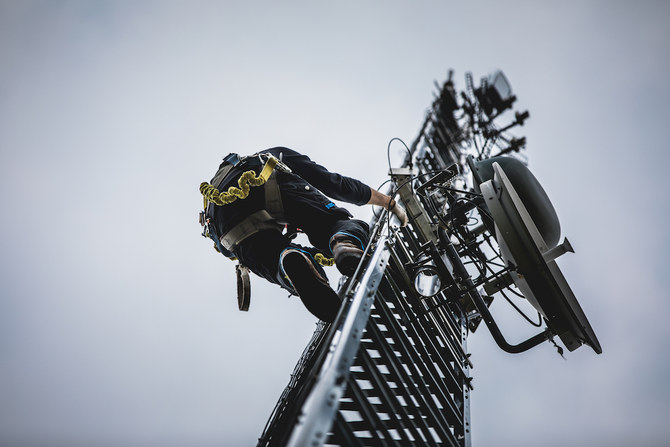LONDON: Telecoms tower company IHS plans to operate up to 30,000 masts in Saudi Arabia within the next five years, as part of a growth strategy in a country it sees as the “pulsating heart” of the Arab world.
The Mauritius-headquartered IHS — which buys or builds mobile phone masts and then leases them to telecoms companies — said in March it had struck a deal with Zain KSA to buy its 8,100 towers in Saudi Arabia. It will then lease them back to the operator.
IHS is now looking for further expansion in the Kingdom and the wider Arabian Gulf, amid plans to raise funds via an initial public offering (IPO).
Sam Darwish, group chief executive at IHS Towers, said the group was interested in talks with additional telecoms operators in Saudi Arabia, which include Saudi Telecom Company (STC) and Mobily, although declined to specify whether negotiations were underway.
“We are definitely interested and would love to develop potential deals with any operator in the Kingdom,” said Darwish.
“There will be an influx point at some point soon, where growth or the transformation in the Kingdom is going to explode in a very positive way. And that’s why the number of towers for us could be somewhere between 10,000 and 30,000 (in approximately five years), because the Kingdom is on the verge of a massive change to the positive.”
Another route to growth in Saudi Arabia is for IHS to build its own towers, rather than acquiring them from telcos, Darwish said.
“Saudi Arabia is just beginning now the 5G rollout … With 5G, you’re going to need a lot of towers, because 5G uses different spectrums,” he said.
The agreement with Zain KSA — which is subject to regulatory approval — also involves IHS building at least 1,500 new telecoms towers over the next six years, the company said. The deal marks IHS’ second in the Gulf, following a previous agreement with Zain Kuwait.
Upon completion of the Saudi Arabia and Kuwait transactions, IHS will have approximately 33,100 towers in its portfolio. IHS, which started its business in Nigeria in 2001, also has operations in Cameroon, Côte d’Ivoire, Rwanda and Zambia.
“Now our main focus is the Gulf, the whole Gulf, plus potentially North Africa — we’re looking at opportunities there. And if you look at the Arab world in general, the Kingdom is the pulsating heart … its population is young, and they’re very influential on the world stage,” said Darwish.
He declined to name any specific operators with which IHS is in discussions.
The company recently obtained a foreign investment license from the Saudi Arabian General Investment Authority in Saudi Arabia, where its staff will number between 100 and 200, Darwish said.
The company last year shelved a plan for an IPO, but Darwish said it is thinking about “moving ahead” with plans for a listing in New York or London.
A secondary listing, for example of a Saudi subsidiary on the Riyadh stock exchange, has also been considered although there are no concrete plans.





















